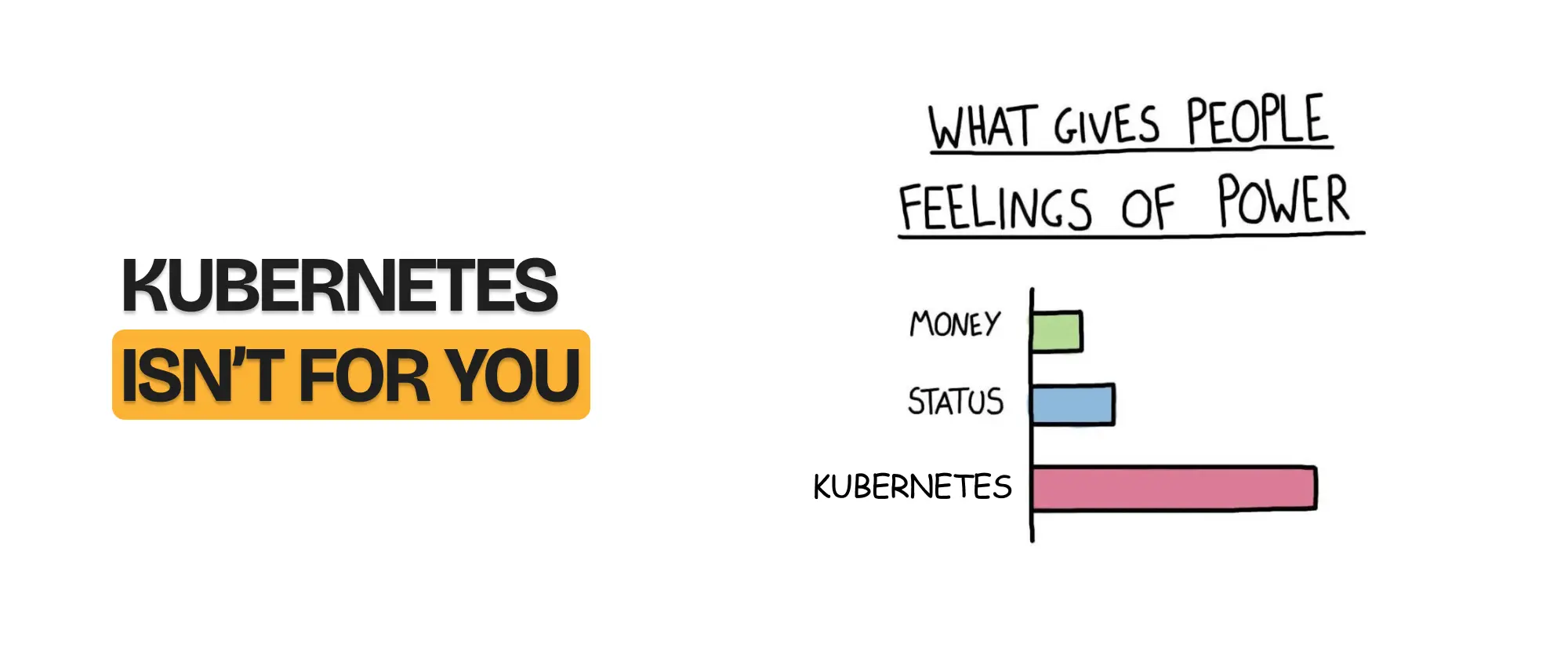
Kubernetes Isn't for You
 Jonas Scholz
Jonas ScholzA lot of startups reach a point where they look at their perfectly working deployment setup and say:
This isn’t serious enough. We need Kubernetes.
But Kubernetes wasn’t built for you. It was built for Google. And your app probably doesn’t need it, not now and maybe not ever.
Kubernetes Was Built for Google
Before Kubernetes, there was Borg. Borg is Google's internal system for running containers at an enormous scale. Think millions of containers, tens of thousands of machines, globally distributed services, and strict resource scheduling. That is the environment Kubernetes was designed to reflect.
Google open-sourced Kubernetes in 2014 as a more general, community-friendly version of Borg. It is incredibly powerful, but it carries that same design DNA. Everything is built with scale and complexity in mind. Multi-zone failover, fine-grained resource control, and plug-in everything. That is great when you have Google-scale problems.
But most teams do not.
You Are Not Google
You are probably running a few backend services, a frontend, maybe a worker or two. You might deploy to one or two regions. You are more focused on pushing features than fine-tuning pod autoscaling strategies.
If you are a small team, Kubernetes will slow you down. If you are a solo founder, it will bury you in YAML.
And yet people adopt it anyway.
Why Startups Choose Kubernetes Anyway
There is a common trap that many technical teams fall into. It goes like this:
- We are getting serious. We need serious tools.
- Big companies use Kubernetes. We should too.
- It feels more professional. It sounds like we know what we are doing.
Sometimes it is resume-driven development. Sometimes it is FOMO. Sometimes it is just wanting to play with cool tech.
But Kubernetes should not be your first infrastructure step. It should be a response to real pain, not an emotional milestone.
Simpler Is Often Smarter
Here is a secret: most real-world apps can run just fine without Kubernetes. Many of them are better off without it.
- Docker Compose works great for solo developers and early teams
- Docker Swarm still functions and is simpler to reason about
- PaaS platforms like Sliplane, Render, Railway, and Fly.io cover 90 percent of use cases out of the box
- Even a bash script with rsync and systemd is better than premature complexity
Do not be afraid to pick something boring and simple. Stability and clarity will help you ship faster.
When Kubernetes Might Make Sense
Kubernetes is not bad. It is just often used too early. Here are some signs you might be ready:
- You have multiple teams managing many services and environments
- You need advanced scheduling or tenancy
- You have real scaling or reliability problems that simpler setups cannot solve
- You are prepared to spend time learning it, maintaining it, and debugging it
- Your first word was "Kubernetes", you live and breathe it, learning anything else would be a waste of time
If that sounds like you, go ahead. Otherwise, think twice.
The Hidden Cost of Kubernetes
Adopting Kubernetes too early introduces real cost:
- Steep learning curve
- Operational complexity
- Fragile CI/CD workflows
- Slower onboarding for new developers
- Time spent managing the platform instead of building the product
This is technical debt in disguise. It is easy to add, hard to remove, and rarely free.
Final Thoughts
Your users do not care what you deployed your app with. They care that it works, that it is fast, and that it gets better over time.
Use simple tools. Build the product. Focus on problems you actually have. If one day you outgrow your setup, you can always migrate. Until then, there is no shame in keeping things boring.
Kubernetes isn’t for you. And that’s perfectly fine.
Cheers,
Jonas, Co-Founder at Sliplane